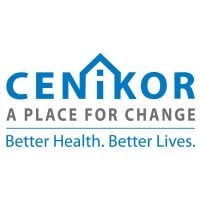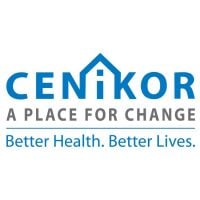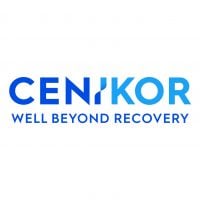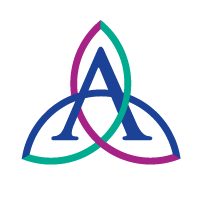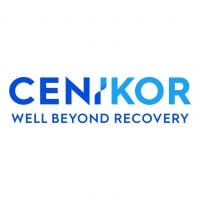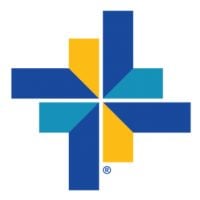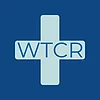Freeman Center - Youth Residential
Drug Rehab Center in Waco, Texas
The Freeman Center - Youth Residential is an Addiction Treatment Facility located in Waco, TX that provides evidence-based treatments, individualized care, and access to a multidisciplinary team of experts in the field to promote long-term recovery from Alcoholism, Opioid Addiction, Substance Abuse, and Drug Addiction.
Multiple patients have reported Freeman Center - Youth Residential as permanently closed.
Research other rehabs in Waco, Texas, or get help finding an open facility.
About Freeman Center - Youth Residential in Texas
Freeman Center - Youth Residential is a drug treatment facility located in Waco, Texas. Dedicated to helping individuals struggling with alcohol and drug addiction, Freeman Center offers a range of treatment programs and services. With a focus on providing support for youth, they specialize in treating alcoholism, opioid addiction, substance abuse, and drug addiction. Offering multiple levels of care, including residential and outpatient treatment, Freeman Center is committed to equipping individuals with the tools and resources necessary to achieve sobriety and maintain long-term recovery.
The Freeman Center - Youth Residential in Waco, Texas offers a diverse range of services and treatment methods to address addiction and substance abuse. Their aftercare support programs aim to provide ongoing support and guidance to individuals after completing the initial treatment program. With a focus on holistic healing, Freeman Center integrates various therapeutic approaches, such as cognitive-behavioral therapy and group therapy, to help individuals identify and address the underlying causes of their addiction. Their residential program provides a safe and supportive environment for individuals to receive intensive treatment, while their outpatient program offers flexibility for those who require a less structured level of care. Overall, Freeman Center - Youth Residential is dedicated to providing personalized and comprehensive treatment to individuals seeking recovery from addiction.
Genders
Ages
Modality
Additional
Conditions and Issues Treated
Substance abuse is a severe problem that affects many people in Waco, TX. It is characterized by the excessive and inappropriate use of drugs, including alcohol, medications, and illicit drugs. Substance abuse can lead to physical or psychological dependence and affect social life and relationships. Treatment options include medications, counseling sessions, behavioral therapy, and group therapy. If you are suffering from substance abuse, contact for the latest treatments available.
Opioid addiction is when someone becomes addicted to opioids. This can happen quickly due to any opioid use. Opioid withdrawal can be uncomfortable and lead the user to continue using even if they want to quit. It’s best to receive inpatient treatment for detoxification.
Even if a person doesn’t need inpatient treatment, it’s recommended to start rehabilitation or at least some kind of outpatient treatment. This is because the withdrawal symptoms from opioids can be uncomfortable and unpleasant, to the point that a person could end up using again or worse.
Detoxification should be done to break the physical addiction of opioids. This can be done with opioid replacement therapy, medication-assisted therapy, or a more traditional detoxification program. Intensive outpatient treatment is a form of addiction care that allows patients to continue living at home while undergoing treatment. This type of care is appropriate for patients who have been treated in residential treatment programs. Intensive outpatient programs include regular visits to the facility providing therapy, and patients gradually return to their routine life. IOP benefits most when patients have a supportive family member or friend to help them recover.
The first step to getting into an intensive outpatient program is to attend a detoxification facility. Detoxification facilities are designed to remove substances from the body safely. The patient will attend sessions designed to help them understand their addiction and its impact on their lives. While in an intensive outpatient program, therapy sessions are scheduled three to five times per week, with the patient attending no more than two sessions in one day.
Levels of Care Offered
This center offers a variety of custom treatment tailored to individual recovery. Currently available are Aftercare Support, Drug Rehab, Outpatient, Residential, with additional therapies available as listed below.
Outpatient treatment consists of counseling and therapy sessions. The outpatient treatment process begins with the addict’s initial detox period, lasting about ten days. Outpatient treatment is used for those who are at moderate risk for “slipping back” into the addiction. It is also used for those who are not currently experiencing any side effects from withdrawal, can handle social pressure, have a stable living environment, and have a good support system.
Residential treatment programs are those that offer housing and meals in addition to substance abuse treatment. Rehab facilities that offer residential treatment allow patients to focus solely on recovery, in an environment totally separate from their lives. Some rehab centers specialize in short-term residential treatment (a few days to a week or two), while others solely provide treatment on a long-term basis (several weeks to months). Some offer both, and tailor treatment to the patient’s individual requirements.
Aftercare support is often overlooked in the treatment of drug and alcohol addiction. However, it’s an essential part and should be considered when planning a course of rehab.
Aftercare is a term that’s used to refer to any sort of continuing care offered for a drug addict who has voluntarily entered a rehabilitation program. This type of care can be provided in several settings, including outpatient therapy sessions after the addict has completed an inpatient program. There are also 12-step support groups, such as Alcoholics Anonymous, which can provide additional help for addicts trying to stay sober.
Aftercare is vital because addicts often face many challenges as they attempt to recover from drug addiction or alcoholism. Because of the powerful nature of these addictions, those who struggle with a drug or alcohol problem will likely have to face the craving for their substance of choice for the rest of their lives. Recovering can be a lonely and frustrating endeavor, especially without the support of others who are going through similar situations.
Therapies & Programs
Individual Therapy is a crucial component of addiction recovery. Therapists work with patients to identify the root of their addiction and figure out how to better handle the issues that led to them using drugs. Individual Therapy is one on one sessions where people meet with their therapist. Individual therapy provides a safe space for people to open up and discuss personal and sensitive topics which they may not feel comfortable discussing in a group setting.
In this type of therapy, therapists can develop specific solutions for each patient, which helps speed up their recovery process. In addiction recovery, therapy is a crucial part. It allows patients to go deep into their core issues and discover how those problems can be better handled now. Therapy can be performed in individual sessions as well as group settings. In individual therapy for addiction, the patient meets with the therapist one-on-one to focus on the underlying issues of addiction and come up with solutions to prevent future abuse.
Family therapy is a crucial part of drug treatment and getting sober. It is one of the most effective ways to help addicts stay on the path to long-term sobriety. One of the most important parts of family therapy is the relapse prevention plan. During treatment, therapists and doctors will often sit down with the addict and their family to develop a plan if the addict ever feels like they want to use again. This plan should involve steps the addict and family can take together to prevent them from relapsing in the future.
An addict’s family can play a vital part in helping them to avoid relapse because they can spot the warning signs and help them get back on track before it becomes too much of a problem. Family therapy is one of the most effective ways to help addicts stay on the path to long-term sobriety.
Group Therapy is employed by drug treatment centers like Freeman Center - Youth Residential to provide the recovering addict with a platform to talk about their feelings and experiences. It also provides for an opportunity to learn from other addicts who have successfully overcome their addiction. It is recommended that all group members be recovering addicts for this type of therapy to work.
Additional Details
Specifics, location, and helpful extra information.
Waco, Texas 76701 Phone Number(254) 753-3291 Meta DetailsUpdated November 25, 2023
Staff Verified
Freeman Center - Youth Residential Patient Reviews
There are no reviews yet. Be the first one to write one.
Waco, Texas Addiction Information
Texas is one of the primary hubs for drug smuggling into the country. The border between Texas and Mexico is more than 1,000 miles long. More than 10 million residents use alcohol every year and more than 25% of those are minors. Alcohol and drug use has become so common in Texas that almost 15% of all deaths can be attributed to these substances.
The National Institute on Drug Abuse says Waco is part of a national trend of rising drug abuse and addiction rates. Opioids such as heroin and prescription painkillers are on the rise in Waco. 12% of adults have used illegal substances in their lifetime, and teens are more likely to abuse drugs than adults. Many addiction treatment centers in Waco can help those struggling with addiction.
Treatment in Nearby Cities
- Cedar Park, TX (82.7 mi.)
- Sugar Land, TX (162.6 mi.)
- Dilley, TX (233.4 mi.)
- Silsbee, TX (194.5 mi.)
- Tioga, TX (133.2 mi.)
Centers near Freeman Center - Youth Residential
The facility name, logo and brand are the property and registered trademarks of Freeman Center - Youth Residential, and are being used for identification and informational purposes only. Use of these names, logos and brands shall not imply endorsement. RehabNow.org is not affiliated with or sponsored by Freeman Center - Youth Residential.

